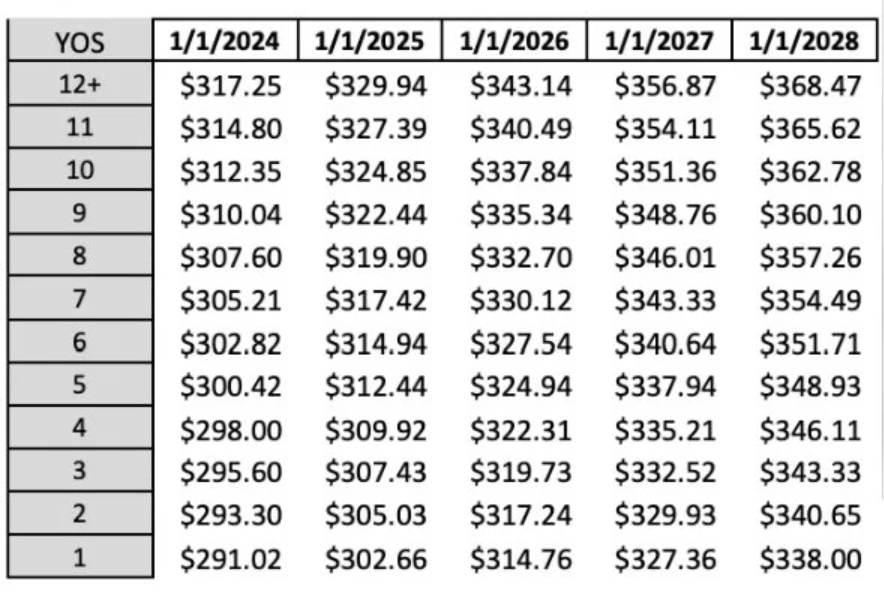Back in March Delta Air Lines pilots agreed to a new contract. It set the highest pay rates that pilots in the industry had ever received. And it basically set the terms for pilot deals that would be struck throughout the rest of the year.
- American Airlines pilots ratified a deal in August
- United Airlines pilots ratified a deal in September
- And now Southwest Airlines pilots have now come to a deal in December
Pay rates varied by a percent, roughly, with some airline-specific work rule issues and with some variance over how pay would be split out by aircraft and seniority. But overall, after many months and strike threats, airlines and pilots agreed to the rough terms that Delta and its pilots negotiated.
Southwest’s deal was a little trickier getting there because normally pilot pay grows with flying larger aircraft, and Southwest Airlines flies only Boeing 737s.
Here are the hourly rates for Southwest airlines captains under the new contract, which has been negotiated and approved by the pilot union negotiators and officers but hasn’t yet been voted on by members.

The deal they struck was “Delta 737 pay plus 1%” which isn’t what Southwest pilots wanted but was all they were going to be able to get. An American Airlines widebody captain earns up to $417.54 per hour in wages which equates to $400,000 per year flying 80 hours per month – plus lucrative benefits and retirement contributions. A Southwest Airlines pilot will never earn that much.
But a Southwest Airlines pilot’s wages gets amortized over fewer passengers. That pilot doesn’t transport as many people at a time. In other words, the Southwest Airlines pilot isn’t as productive, so can’t earn as much. That makes Southwest a less attractive place for many to start their major airline careers.
Delta has been the most profitable airline, in a position to pay the highest wages and with the greatest downside to a strike. United CEO Scott Kirby articulated the argument that higher pilot wages hurt weaker airlines most, and that regional carriers would suffer – since they have the fewest seats to amortize wages over.
Pilots make a lot of money because,
- The training requirements involved are significant
- So it’s costly and time-consuming to be a pilot
- Pilots aren’t easily replaced
- Pilots can bring down an airline even when they don’t officially strike
That’s also why pilot unions lobby for higher entry requirements into the profession, creating a pilot shortage and greater difficulty recruiting replacements. At United and American pilots now even trump passengers for first class upgrades at the airport if they’re deadheading to work a flight.
Other labor groups see the deals they get and think somehow they can be replicated, but none have the leverage. And their members are less able to sustain a strike because they’re less well paid and can’t be out of work for as long.